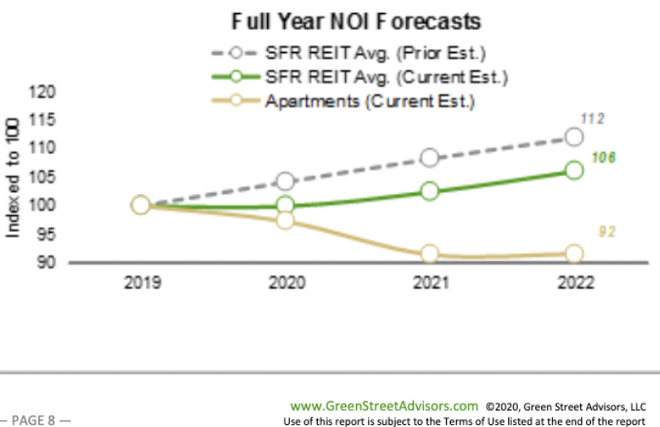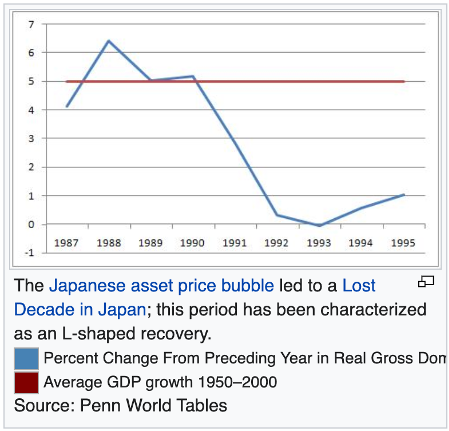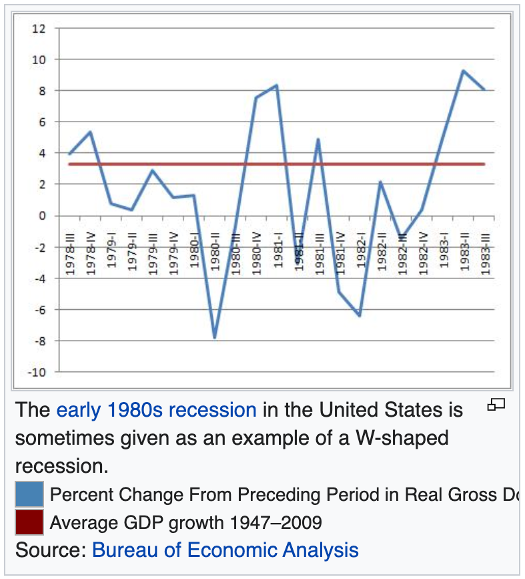Post-Pandemic Investment Outlook: Top-Performing Property Types for 2020 and Beyond
Want more articles like this?
Create an account today to get BiggerPocket’s best blog articles delivered to your inbox
Sir Winston Churchill said it best: “Never let a good crisis go to waste.”
Take Disney and Uber and General Electric. Microsoft and Apple and The Kennedys’ fortune were all built in times of crisis, too.
Now, please don’t shout me down. I’m not suggesting that you take advantage of anyone during a tough time. I’m not advocating that you stockpile and become a profiteer from toilet paper or masks or hand sanitizer.
(Though I do know where some good deals are…)
I am stating the fact that an economic crisis provides natural opportunities for the transfer of property and wealth, and there will actually be opportunities to help people in the process.
Related: How to Be a Hero (& Grow Your Wealth) Amid the Coronavirus Meltdown
For example, some of you know how to execute a lease-option sandwich. This is a “subject to” deal, where you acquire a home with the previous mortgage in place and lease it to someone else for a profit. The tenant-buyer has the option to buy the home for a pre-negotiated price later.
There is no loser in these deals. Only winners. Here’s what I mean:
- The Distressed Seller = Winner #1: They get to sell a home that may have been foreclosed upon. Their credit damage is mitigated.
- The Bank = Winner #2: They don’t have to foreclose and own/manage a piece of real estate. And they make an ongoing profit from regular payments. (Don’t scoff. The bank is made up of shareholders who are people, too—I think.)
- The Tenant-Buyer = Winner #3: They get to rent a home they want to live in while building up their damaged credit score and saving up a down payment. And they have the option to buy their home later.
- You, the Real Estate Investor = Winner #4: As the coordinator of this transaction, you get up to three paydays: a deposit at closing, an ongoing monthly profit from rent, and the sale price minus mortgage payoff at the sale.
It’s a beautiful thing and everybody truly wins! I’ll be talking about these deals on my upcoming BiggerPockets live shows on YouTube and Facebook on Saturday mornings. (These links will get you there.)
In this post, I’m going to review highlights from a recent Crowdstreet webinar called “Finding Real Estate Investment Opportunities in a Post-COVID-19 Economy. The webinar featured Ian Formigle from Crowdstreet, Melissa Reagan of Nuveen Real Estate (one of the world’s largest managers of real estate), and Peter Grant of The Wall Street Journal.
They covered:
- Why certain asset classes may recover faster than others and why
- Which markets are likely to bounce back first?
- What the long-term impact of the pandemic might be
- What the “distressed” market for opportunistic investing may look like
Impacts of the Pandemic on Specific Asset Classes
Retail
The panel focused first on retail, which already had strong oppositional headwinds going into this crisis. I read that about 12,000 U.S. retail locations closed in 2019—in a booming economy. This crisis will certainly accelerate this process.
Many believe that JCPenney and Nieman Marcus may follow Sears into bankruptcy soon.
Single-Family Homes
On an encouraging note, many BiggerPockets readers will be glad to know that single-family rentals are predicted to fare very well in this downturn. There are many individuals and families who prefer to rent a home in a particular school district or area, and availability is often limited.
Multifamily Housing
Green Street Advisors now predicts that apartment rents will fall 8% in the next two years due to fallout from the crisis, plus over-supply of new units. But single-family rentals are predicted to rise by 6% during this period.

Industrial
The industrial real estate sector is also predicted to fare well, especially when tied to the e-commerce economy. Many have predicted that some products previously outsourced to China will come back to the U.S. (though much of the labor will be replaced with robotics). This could help the fledgling rust belt.
Office Space
What about office real estate? On one hand, companies like Morgan Stanley have discovered they can operate just fine with less office space.
“Clearly, we’ve figured out how to operate with much less real estate,” [CEO James] Gorman said. “Can I see a future where part of every week, certainly part of every month, for a lot our employees will be at home? Absolutely.” (From an April 17th Bloomberg interview reported in Bisnow.)
On the other hand, a move toward suburban space may provide opportunities for employees to spread out and some firms may rent more space according to the Crowdstreet panel.
Senior Housing
What about senior housing? The Kirkland, Washington, COVID-19 disaster generated a lot of negative news about this sector, and it’s likely that 40- to 60-year-olds won’t be moving their aging parents into facilities at this moment. And there was already significant downward pressure on this sector due to over-supply.
The panel said to watch for near-term consolidation as bigger players gobble up smaller ones.
That may be true in the short-term. But as Brandon Turner recommended in his recent video, we need to look at the big picture and the long-term. Smart investors will buy with an eye to the 10-year or longer window—not just today.
Related: Recession Prep 101: Investing in Real Estate During a Financial Crisis
Turner referenced Tesla’s stock price plunge after Elon Musk smoked pot on the Joe Rogan podcast. This was an obvious buying opportunity for smart investors, since the stock quickly rebounded later. The share value is based on Tesla’s business—not a stunt by its CEO.
And I think senior housing may provide the same opportunity. Why?
For one thing, the demographics of the baby boomer generation will help this sector—a lot. Baby boomers start turning 75 next year, and the demand for all forms of senior housing will boom for the next 20 to 40 years. Longer lifespans from dramatically improved medical technology will also bolster this sector.
Affordable Housing
At the other end of the spectrum, affordable housing will continue to prosper. About 10,000 Americans per day turn 65, and six out of 10 have $10,000 or less saved for retirement.
Many can trade in home equity or can afford mobile home park lot rent, however. And mobile home parks are the only asset type with diminishing supply in the face of healthy demand. That’s why Brandon Turner is betting big on mobile home parks. And my investment firm is, too.

Mobile Homes & Self-Storage
A recent Crowdstreet webinar said that mobile home parks are the darling of all commercial real estate right now. Joined by self-storage, these are two of the bright spots of the real estate world right now.
In this week’s report, Crowdstreet says that though storage operators have been dropping rates in recent weeks, storage occupancies and delinquencies are expected to be in much better shape than other property types.
As an example, Radius Plus just reviewed self-storage delinquencies in Las Vegas, theoretically among the hardest hit U.S. markets. As of this April 30, delinquencies are up from the normal 2 to 3% to a modest 7.5%, which is an encouraging sign (considering the severity of this crisis).
Radius Plus predicts a lot of capital will flee other asset types to invest in self-storage in the coming years. Professional self-storage tenants on autopay, the relatively small cost of storage, and the ease of eviction in storage compared to residential will help self-storage weather this storm.
The four Ds (death, divorce, downsizing, and dislocation) are all happening in this crisis, and these sad events often strengthen self-storage performance.
Markets Likely to Recover Quickly
Nuveen’s research team analyzed major U.S. cities based on their exposure to COVID-19 (mortality rates, etc.), the ongoing health of their economy, the concentration and type of small businesses, government employment, unemployment claims, and the concentration of lodging and travel.
Many cities that landed on top for quickest recovery are in the sunbelt. These include Raleigh, Charlotte, Austin, Dallas, and Nashville. Other cities like Denver, Salt Lake City, and Minneapolis were mentioned, as well. Diversified cities with colleges and governments like Columbus also make the list.
These are cities that were already attracting jobs and people before the crisis. And this event will likely be catalyzing people to move where they have long wanted to go anyway, as they reshuffle priorities and make lifestyle and job changes.
Cities that may struggle include Las Vegas and New Orleans, both heavily dependent on tourism. I have heard Orlando is on this list, as well. I always look for roller coaster pricing in the sand states of Florida, Nevada, Arizona, and California. I would also expect oil production, transportation, and refining regions to be hit hard.
If you’re in the quick recovery cities, this is good news for you and your economy. If you’re in areas likely to struggle, don’t despair. Enormous profits can be made by buying real estate and businesses at the bottom of the cycle. Brandon Turner discussed this on an insightful recent BP video. If you are in a city or region that experiences massive swings, I believe the lease option sandwich/subject-to strategy I described above could be a great way to make massive profits while helping others who are suffering.
Opportunities in Distressed Markets
Preqin recently reported there is $320 billion sitting on the sidelines worldwide waiting to invest in real estate. The recent stock market difficulties haven’t hurt real estate either.
Melissa Reagan said that predicting the shape of this recession and future recovery is a fool’s errand, and I agree. This could be V-shaped, U-shaped, W-shaped, or the dreaded L-shaped recession.
The goal for you, my investor friends, is to figure out where we are in the cycle and act appropriately. I often recommend the Howard Marks classic Mastering the Market Cycle to understand this more.
Here are sample recession and recovery shapes as a reference point anyway, courtesy of Wikipedia:




How to Invest Post-Coronavirus
Crowdstreet’s Ian Formigle recommended a barbell approach to investing in the wake of this crisis. On one end of the barbell, choose great assets with strong tenant bases that may be discounted 5 to 10% in the coming months. These are lower-risk deals. (I would add that these should be asset types and operators you’re most deeply familiar with.)
On the other end of the barbell, he recommends preparing to seek opportunistic deals in harder-hit areas like Las Vegas, New Orleans, and Orlando.
My main focus continues to be on recession-resistant assets like self-storage and mobile home parks. That is the conservative end of my barbell and by far the heavy end. In the middle, I plan to look for opportunities from distressed sellers among these asset types. I don’t expect that many, except from underperforming mom-and-pop sellers.
Related: Crisis Investing 101: The Most Recession-Proof Real Estate Niches
On the other end of the barbell, the light end for me, I will plan to look for deeply discounted pre- or post-foreclosures assets in property types I’m deeply familiar with like multifamily, which I’ve been warning BiggerPockets investors the past several years due to over-zealous apartment buyers bidding up prices.
And I’m really interested in putting together a distressed debt fund or a distressed asset fund to take advantage of these opportunities.
Least importantly, for fun, as I’ve discussed on my BiggerPockets live shows on Saturdays that I intend to acquire a distressed condo in Orlando or a coastal Florida location in this crisis.
So, what about you? How do you see this crisis playing out?
We’re all hoping for a v-shaped recovery. But there is a real possibility it will be another shape.
How will you build wealth for you and your investors in this unprecedented era? How are you preparing to do that now?
I’ve written earlier on the importance of preparing yourself, your team, and your tribe. There’s no better time to start than today.

